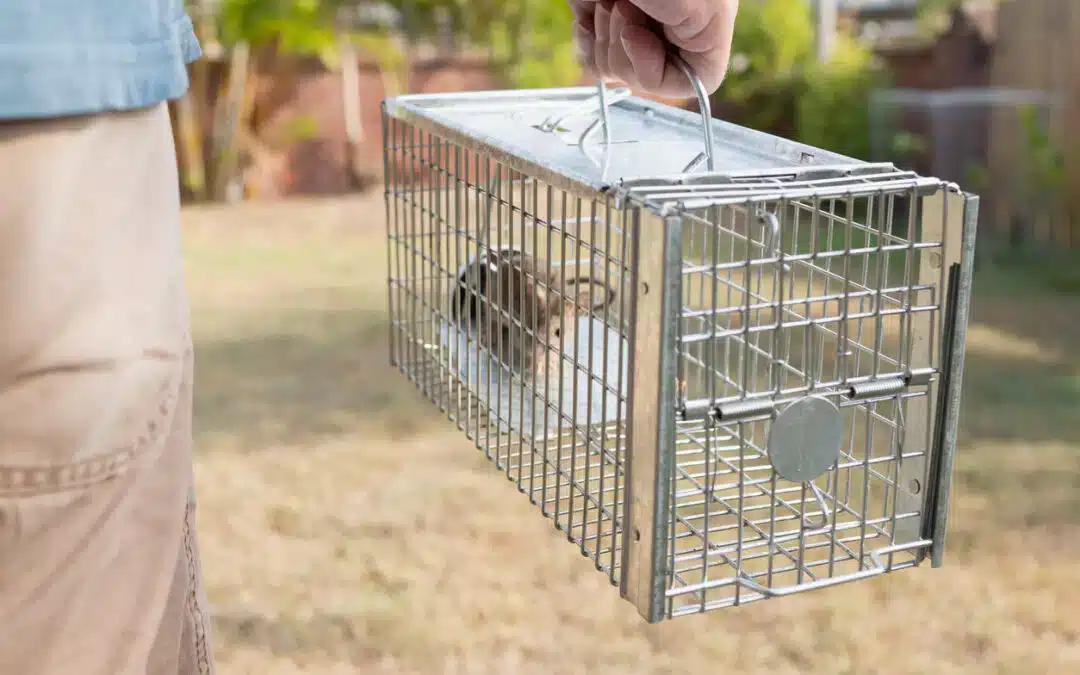Wild animals in your home?
Give us a call for 24/7 Emergency Wildlife Control & Removal in Dallas/Fort Worth.
(817) 606-7607Contact UsContact UsA homeowner’s duty is to keep invasive wildlife out of their property, but no one expects you to be an expert on everything. Despite your best attempts, animals may occasionally get inside your house. If this occurs, refrain from attempting to get rid of them. So, what do you so when a wild animal is in your home?
If the proper eradication strategy is not used, pesky animals roaming your home could be dangerous. Here are some reasons why, what to do, and when you should get help from a professional!
But first- What is Wildlife Removal/Animal Control?
Wildlife management services, often known as wildlife removal or animal control, involve the humane capture and removal of wild or domestic animals that are a nuisance or threat to your home, pets, children, or nearby residents.
You should first call a specialist if you think a wild animal is residing in or on your property. Do not attempt to frighten or capture a wild animal by yourself. These experts have undergraduate degrees in biology or other relevant disciplines. Their experiences enable them to manage all kinds of wild animal species with greater knowledge.
When should you call for professional help?
If you ignore strange sounds, unpleasant smells, or other indications of trespassing wild animals, the issues could get worse. When you detect any of the following indicators, get in touch with wildlife removal:
Animal sighting: You have visual proof of an invader if you observe an animal enter or exit a crawl space or find it in your living spaces. Even though you could attempt to expel that one yourself, more might come.
Weird smell: If you detect a vile stench in a particular section of your home, an animal may be imprisoned or deceased in a remote location. Make sure to address this issue properly because fecal matter potentially causing the smell might lead to serious illnesses.
Holes in the yard: Moles or other rodents may be residing on your property if you notice soil stains or holes in your yard or close to the house’s foundation. Additionally, holes in the earth serve as entrances to your home’s basement or crawl space.
Scratching sounds: An animal may be residing inside if you hear scratching or movement in your walls, attic, basement, or crawl spaces. All the evidence you need to call a wildlife removal specialist to your home immediately may be the sound of moving animals.
Why should I call professionals for Wildlife Removal/Animal Control?
Animals shouldn’t be left unattended in homes. Because it occurs in your crawlspace, attic, or between your walls, animal damage frequently goes unnoticed. In addition, the majority of wild animals harbor diseases or parasites that can harm your health. There are several reasons you should opt for professional help rather than take care of the issue yourself:
- The animal may be carrying a disease that can harm your health.
- If the animal has a tendency to show aggression, it may cause harm to you.
- It may be a stray or show signs of injury, which could be out of your scope of care.
- Perhaps the animal can potentially be adopted, but you are unsure as to how to go about the procedure.
What kind of services does Wildlife Removal/Animal Control provide?
1. Inspection
When you engage a professional for wildlife removal, the process starts with carefully examining the area. They will first scan the area of your property to determine and assess the wildlife problem. Attics, crawl spaces, and other hard-to-reach regions of your home can be accessed by these experts thanks to their tools and skills.
2. Traps and Removal
Typically, traps are used in wildlife removal to capture and transport wild animals. The most efficient technique is to capture and remove unwanted animals from your area. The right trapping technique guarantees the animal is safely removed with the least amount of property damage.
3. Rabies vaccines
In the case of domestic animals, any animal that needs a rabies shot can get one from your local animal control center for a reasonable price. The pets who already reside in a good home are also included in the community’s commitment to animal protection.
Animal control personnel are educated to diagnose and care for sick animals showing rabies symptoms. To learn about their vaccination schedule, contact your neighborhood animal service.
4. Animal Bite Investigation
Even isolated animal bites can be dangerous, particularly if they pose a rabies risk. Animal control can assist if a possibly rabid animal has bitten you, a friend, or a pet. Due to their training, officers can look into the bite and the behavior of the bitten animal.
To conclude?
In general, animal control and wildlife removal play two distinct functions. To get a wild animal off of your home or business, use a trained wildlife removal specialist!
Are you in need of wild animal removal from your home? Our friendly operators at Dallas Fort Worth Wildlife Control are available now at (817) 606-7607 or (972) 954-9244. Find out more about our animal removal in Arlington and Fort Worth, TX.


